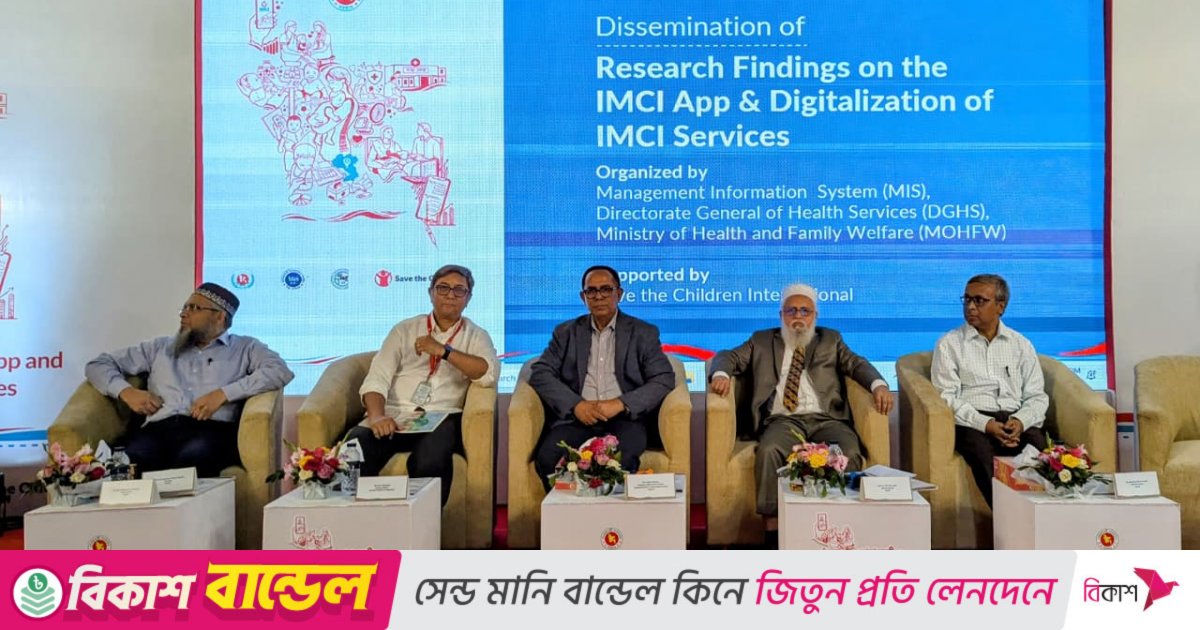The digital Integrated Management of Childhood Illness (IMCI) application significantly improves the accuracy of diagnoses, streamlines referrals, and reduces paperwork for frontline health workers in Bangladesh, paving the way for a potential nationwide rollout, a new study has found.
The findings were presented on Monday at a national dissemination and experience-sharing workshop jointly organized by the Directorate General of Health Services (DGHS) and Save the Children at the Melaghor-1, DGHS in Mohakhali TB Gate, Dhaka.
Conducted by Save the Children in collaboration with the Institute of Health Economics at the University of Dhaka, the research highlighted how the app enhances accountability, improves patient tracking, and increases efficiency in delivering child health services, especially in rural and underserved areas.
Shumon Sengupta, country director of Save the Children in Bangladesh, called the app a “game-changer” in early disease detection and treatment at the primary care level.
“We remain committed to supporting the government in expanding its reach and mobilizing further funding,” he said.
Health Services Division Secretary Md Saidur Rahman, the event’s chief guest, said: “Children are dying from diseases that are entirely preventable. This technology gives us a new edge in fighting that reality.”
DGHS Director General Prof Dr Md Abu Jafar echoed the urgency of scale-up.
“Nearly 40% of our population are children. Achieving universal health coverage by 2030 will require grassroots adoption of digital innovations like this one.”
The app has been developed in alignment with national IMCI protocols and is fully interoperable with Bangladesh’s key health information systems, including DHIS2, OpenSRP, and OpenMRS, allowing for more coordinated and data-driven care delivery across the country.



